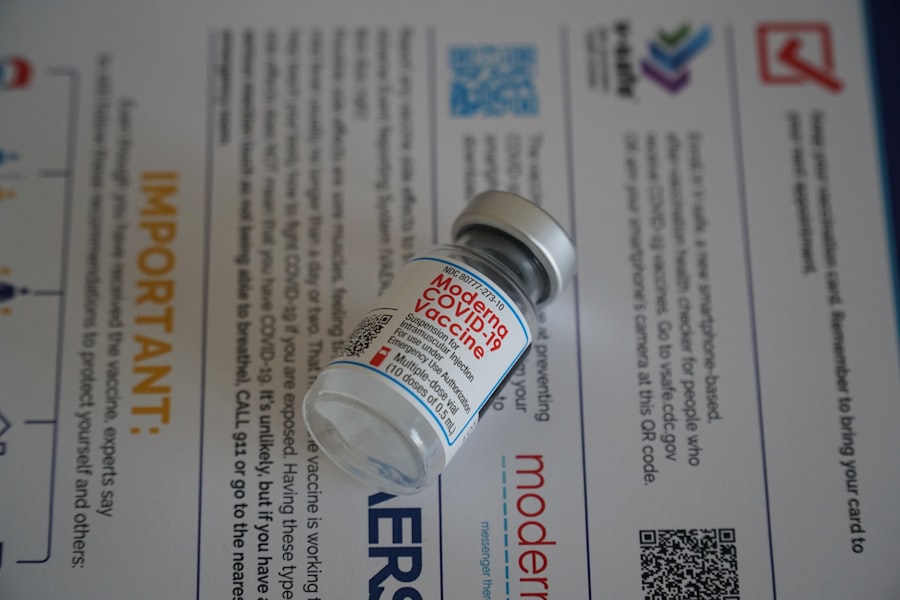The pharmaceutical industry is a complex and multifaceted sector that plays a crucial role in global health. It encompasses the research, development, manufacturing, and distribution of medications and therapies aimed at preventing, treating, and curing diseases. The industry is characterized by its heavy reliance on scientific research and innovation, with companies investing billions of dollars annually in the development of new drugs.
This investment is often driven by the need to address unmet medical needs, improve patient outcomes, and respond to emerging health threats. The pharmaceutical landscape is also shaped by stringent regulatory frameworks, which vary by country but generally require rigorous testing and approval processes to ensure the safety and efficacy of new products. In addition to the scientific and regulatory aspects, the pharmaceutical industry is influenced by market dynamics, including competition, pricing pressures, and the evolving needs of healthcare providers and patients.
The rise of personalized medicine, biotechnology, and advanced therapies has transformed the way drugs are developed and marketed. Furthermore, the increasing importance of patient-centric approaches has led to a shift in how pharmaceutical companies engage with their audiences. Understanding these dynamics is essential for stakeholders within the industry, as it informs strategic decisions related to product development, marketing, and overall business operations.
Key Takeaways
- Digital marketing is crucial for success in the highly regulated pharma industry.
- Selecting a specialized digital marketing agency ensures compliance and effective strategy execution.
- Data analytics drives targeted and measurable pharma marketing campaigns.
- SEO, content marketing, and social media are key tools for enhancing pharma brand visibility.
- Navigating regulatory challenges is essential to optimize ROI and maintain industry standards.
The Role of Digital Marketing in Pharma Success
Digital marketing has emerged as a pivotal component of pharmaceutical success in an increasingly interconnected world. Traditional marketing methods, such as print advertising and face-to-face sales calls, are no longer sufficient to reach today’s tech-savvy healthcare professionals and patients. Digital channels offer a more targeted approach, allowing pharmaceutical companies to engage with their audiences through various platforms such as websites, social media, email campaigns, and online advertising.
This shift not only enhances visibility but also fosters deeper connections with stakeholders by providing valuable information and resources tailored to their specific needs. Moreover, digital marketing enables pharmaceutical companies to leverage data-driven insights to refine their strategies. By analyzing user behavior and engagement metrics, companies can identify trends and preferences that inform their marketing efforts.
For instance, a pharmaceutical company may discover that healthcare professionals are more likely to engage with educational content about a specific therapeutic area when delivered through video formats rather than traditional text-based articles. This insight allows for more effective content creation and distribution strategies that resonate with the target audience, ultimately driving better engagement and conversion rates.
Choosing the Right Digital Marketing Agency

Selecting the right digital marketing agency is a critical decision for pharmaceutical companies seeking to enhance their online presence and achieve their marketing objectives. The ideal agency should possess a deep understanding of the unique challenges and opportunities within the pharma sector. This includes familiarity with regulatory requirements, knowledge of industry trends, and experience in crafting campaigns that resonate with both healthcare professionals and patients.
A thorough vetting process is essential; companies should evaluate potential agencies based on their track record, client testimonials, and case studies that demonstrate successful outcomes in similar projects. Additionally, collaboration is key when working with a digital marketing agency. Pharmaceutical companies should seek partners who prioritize open communication and transparency throughout the campaign lifecycle.
This collaborative approach ensures that both parties are aligned on goals, messaging, and strategies. Furthermore, agencies that offer a comprehensive suite of services—ranging from search engine optimization (SEO) to content marketing and social media management—can provide a more integrated approach to digital marketing. This holistic strategy can lead to more cohesive branding efforts and improved overall effectiveness in reaching target audiences.
Utilizing Data and Analytics for Pharma Marketing
| Metric | Description | Typical Value/Range | Importance in Pharma Marketing |
|---|---|---|---|
| Patient Engagement Rate | Percentage of patients interacting with digital marketing campaigns | 15% – 40% | Measures effectiveness of targeted content and outreach |
| Physician Response Rate | Rate at which healthcare professionals respond to marketing communications | 10% – 25% | Indicates relevance and personalization of marketing messages |
| Conversion Rate | Percentage of targeted audience taking desired action (e.g., signing up for trials) | 5% – 15% | Shows success of campaigns in driving patient or physician action |
| Data Accuracy | Percentage of clean, verified data used in analytics | 90% – 98% | Critical for reliable insights and decision-making |
| Time to Insight | Average time taken to generate actionable insights from data | 1 – 3 days | Faster insights enable timely marketing adjustments |
| Return on Marketing Investment (ROMI) | Effectiveness of marketing spend measured by revenue or engagement | Varies widely by campaign | Helps optimize budget allocation and strategy |
| Market Segmentation Accuracy | Precision in identifying and targeting specific patient or physician groups | 85% – 95% | Improves personalization and campaign relevance |
| Data Integration Level | Extent to which multiple data sources are combined for analysis | High (70%+ integration) | Enables comprehensive insights and holistic marketing strategies |
In the digital age, data and analytics have become indispensable tools for pharmaceutical marketing. By harnessing data from various sources—such as website traffic, social media engagement, email open rates, and customer feedback—pharmaceutical companies can gain valuable insights into their audience’s preferences and behaviors. This information allows marketers to tailor their campaigns more effectively, ensuring that messaging resonates with specific segments of their target market.
For example, if data reveals that a particular demographic is more likely to respond positively to educational webinars about a new drug, companies can prioritize this format in their outreach efforts. Moreover, advanced analytics tools enable pharmaceutical marketers to track the performance of their campaigns in real-time. This capability allows for agile decision-making; if a campaign is underperforming, marketers can quickly adjust their strategies based on data-driven insights.
For instance, if an email campaign is not generating the expected click-through rates, marketers can analyze subject lines, content layout, or timing to identify areas for improvement. By continuously monitoring performance metrics and making data-informed adjustments, pharmaceutical companies can optimize their marketing efforts for maximum impact.
Implementing Effective SEO and Content Marketing Strategies
Search engine optimization (SEO) and content marketing are critical components of a successful digital marketing strategy for pharmaceutical companies. SEO involves optimizing online content to improve visibility on search engines like Google, ensuring that potential customers can easily find relevant information about products or services. For pharmaceutical companies, this means creating high-quality content that addresses common questions or concerns related to specific health conditions or treatments.
By incorporating relevant keywords and phrases into their content—while adhering to best practices for SEO—companies can enhance their chances of ranking higher in search results. Content marketing goes hand-in-hand with SEO by providing valuable information that engages audiences while also driving organic traffic to websites. Pharmaceutical companies can develop a range of content types—including blog posts, infographics, videos, and whitepapers—that educate healthcare professionals and patients about various therapeutic areas or treatment options.
For example, a company launching a new diabetes medication might create a series of blog posts discussing lifestyle changes that can complement treatment or infographics illustrating the drug’s mechanism of action. By positioning themselves as thought leaders in their field through informative content, pharmaceutical companies can build trust with their audience while also improving their search engine rankings.
Leveraging Social Media for Pharma Branding

Social media has transformed the way pharmaceutical companies interact with their audiences, offering platforms for direct engagement and brand building. While historically cautious about using social media due to regulatory concerns, many pharma companies are now recognizing its potential for fostering relationships with healthcare professionals and patients alike. Platforms such as LinkedIn, Twitter, Facebook, and Instagram provide opportunities for sharing educational content, promoting events, and engaging in conversations about health-related topics.
By establishing a strong social media presence, pharmaceutical companies can enhance brand visibility while also humanizing their image. Effective social media strategies involve not only sharing promotional content but also engaging with followers through interactive posts, polls, and discussions. For instance, a pharmaceutical company might host a live Q&A session on Facebook or Instagram where healthcare professionals can ask questions about a new treatment option.
This type of engagement not only provides valuable information but also fosters a sense of community among followers. Additionally, social media analytics tools allow companies to track engagement metrics such as likes, shares, comments, and follower growth—insights that can inform future content strategies and help refine messaging.
Navigating Regulatory Challenges in Pharma Digital Marketing
The pharmaceutical industry operates under strict regulatory guidelines that govern how products can be marketed to healthcare professionals and consumers. These regulations vary by region but generally require transparency in advertising claims and prohibit misleading information about drug efficacy or safety. As digital marketing becomes increasingly prevalent in pharma, navigating these regulatory challenges is essential for compliance and maintaining public trust.
Companies must ensure that all digital content adheres to guidelines set forth by regulatory bodies such as the Food and Drug Administration (FDA) in the United States or the European Medicines Agency (EMA) in Europe. To effectively navigate these challenges, pharmaceutical companies should work closely with legal teams or regulatory experts during the development of digital marketing campaigns. This collaboration ensures that all messaging is compliant with relevant regulations while still being engaging and informative for the target audience.
Additionally, training internal teams on compliance best practices can help mitigate risks associated with digital marketing efforts. For example, establishing clear protocols for reviewing content before publication can prevent potential violations that could lead to fines or reputational damage.
Measuring and Optimizing Digital Marketing ROI in Pharma
Measuring return on investment (ROI) is crucial for assessing the effectiveness of digital marketing efforts in the pharmaceutical industry. Companies must establish clear metrics to evaluate campaign performance against predefined goals—whether those goals involve increasing brand awareness, generating leads, or driving sales conversions. Common metrics include website traffic analytics, conversion rates from landing pages or email campaigns, social media engagement levels, and overall sales growth attributed to specific marketing initiatives.
To optimize ROI further, pharmaceutical companies should adopt a continuous improvement mindset by regularly analyzing campaign performance data and making necessary adjustments based on insights gained. For instance, if a particular digital ad campaign yields high click-through rates but low conversion rates, marketers may need to reevaluate the landing page experience or refine the messaging to better align with audience expectations. By employing A/B testing techniques—where different versions of ads or landing pages are tested against each other—companies can identify which elements resonate most effectively with their audience.
This iterative approach not only enhances campaign performance but also maximizes overall marketing ROI in an increasingly competitive landscape.



